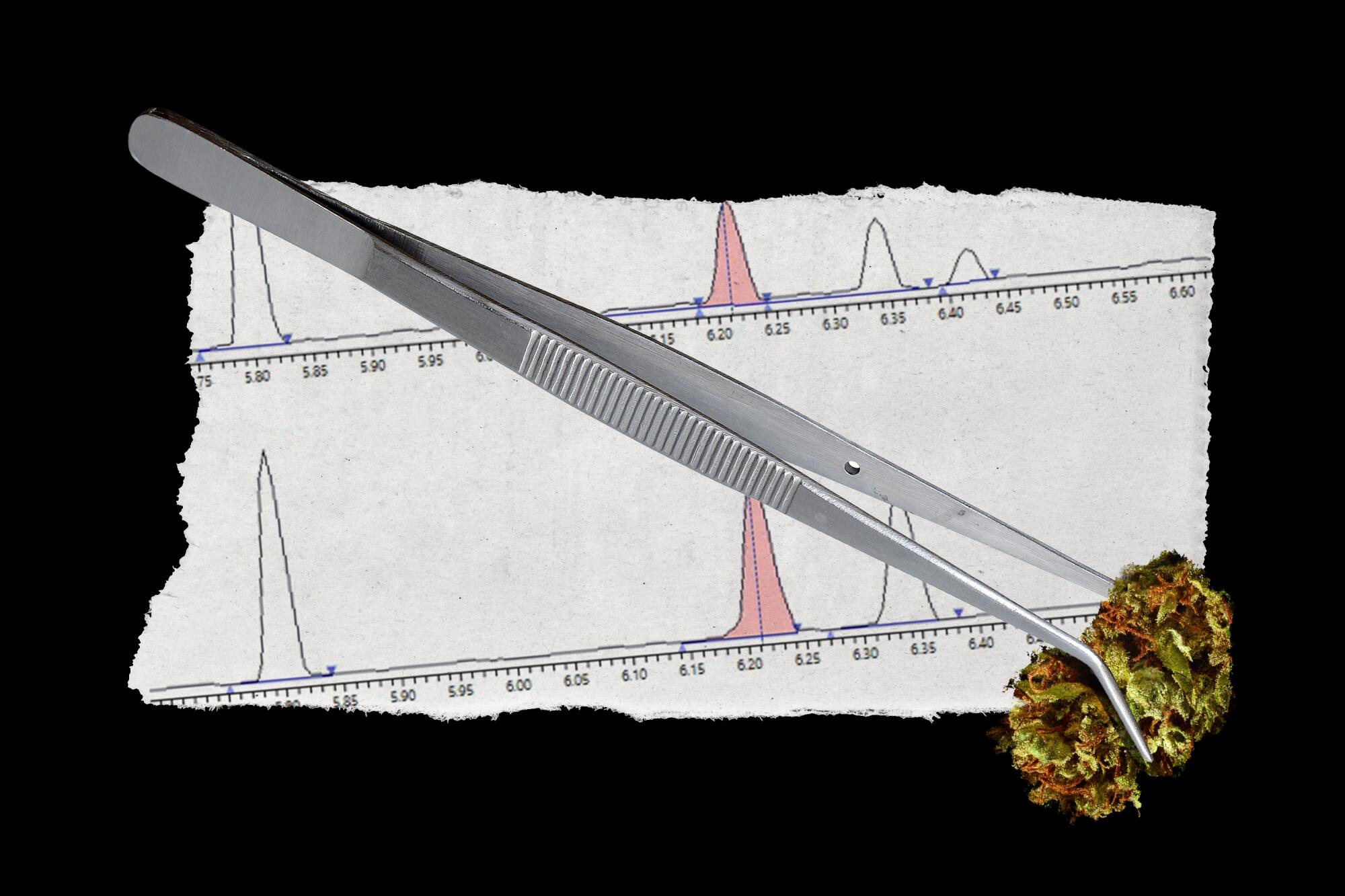
- Share via
California currently performs no independent checks on pesticide levels in cannabis sold to consumers or the accuracy of private pesticide tests certifying cannabis for sale.
To see where that leaves consumers, The Times and WeedWeek undertook their own tests. Reporters bought products from licensed dispensaries across the state. Two licensed cannabis testing labs — Anresco Laboratories in San Francisco and SC Labs in Santa Cruz — agreed to screen the samples for an expanded list of pesticides.
Samples were selected for a variety of reasons: sales promotions, unusually high potency levels, or they were named in complaints to regulators. Testing also focused on vapes, which because of their concentrated oils can pose a greater health threat to consumers.
California’s legalization of recreational cannabis in 2016 ushered in a multibillion-dollar industry estimated to be the largest legal weed market in the world. But many of the promises of legalization have proved elusive. In a series of occasional stories, we’ll explore the fallout of legal pot in California.
Reporters removed packaging and obscured labels so labs did not know the products being tested. In many cases, both labs tested the same product, and other products were retested.
In total, 66 tests were run to check for more than 100 pesticides, well beyond California’s required screening of 66 chemicals. It is possible that other pesticides are present. Results from a state agriculture lab conducting tests for regulators showed 16 additional pesticides that Anresco and SC Labs were not set up to measure.
Additional test results were provided to The Times by Anresco and a third lab, Infinite Chemical Analysis Labs in San Diego, which had sent those results to state regulators. In these cases, the labs selected which products to test.
Alex Halperin is editor of the industry newsletter WeedWeek.
More to Read
Sign up for Essential California
The most important California stories and recommendations in your inbox every morning.
You may occasionally receive promotional content from the Los Angeles Times.












